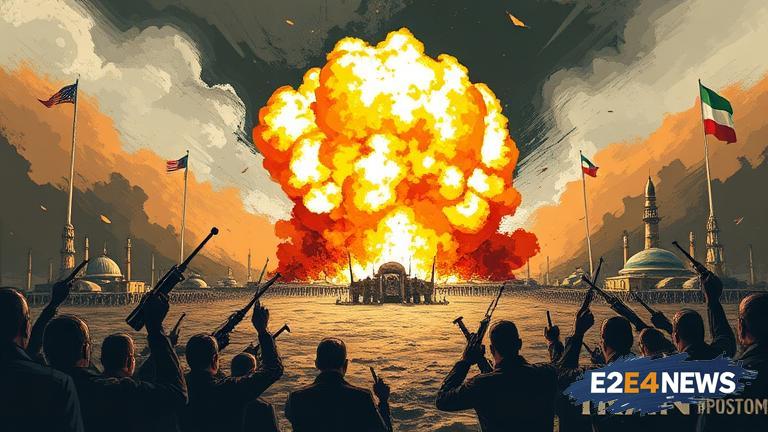Iran has issued a stern warning to Israel and the United States, stating that it will not hesitate to launch a devastating response if either country initiates a war. The warning comes amidst rising tensions in the Middle East, with Iran’s military capabilities and strategic alliances being closely watched by regional and global powers. In recent years, Iran has significantly enhanced its defense systems, including the development of advanced missile technology and the expansion of its naval presence in the Persian Gulf. The country’s military leaders have repeatedly emphasized their commitment to defending Iran’s sovereignty and territorial integrity against any external threats. Israel, which has long considered Iran a major threat to its national security, has been engaged in a series of covert operations and public warnings aimed at deterring Iranian aggression. The US, a key ally of Israel, has also been involved in efforts to contain Iran’s growing influence in the region, including the imposition of economic sanctions and the deployment of military assets to the Middle East. Despite these efforts, Iran remains a major player in regional politics, with significant influence in countries such as Iraq, Syria, and Lebanon. The Iranian government has consistently denied allegations that it is seeking to develop nuclear weapons, insisting that its nuclear program is solely for peaceful purposes. However, the international community remains skeptical, and the issue continues to be a major point of contention in negotiations between Iran and the West. As tensions continue to escalate, there are growing concerns about the potential for a large-scale conflict in the region. Such a conflict would have far-reaching consequences, including the potential for significant human suffering, economic disruption, and geopolitical instability. The international community is urging all parties to exercise restraint and to seek a diplomatic resolution to the crisis. The European Union, in particular, has been actively engaged in efforts to promote dialogue and to find a peaceful solution to the standoff. However, the situation remains highly volatile, and the risk of miscalculation or unintended escalation remains high. In this context, Iran’s warning of a devastating response to any potential aggression serves as a stark reminder of the dangers of military action and the need for a peaceful resolution to the crisis. The Iranian government has also emphasized its commitment to supporting regional allies and resistance groups, which it sees as a key component of its national security strategy. This has led to tensions with other regional powers, including Saudi Arabia and the United Arab Emirates, which view Iran’s activities as a threat to their own national security. The US and Israel have also been critical of Iran’s support for regional allies, which they see as a key factor in the region’s instability. Despite these challenges, Iran remains a major player in regional politics, and its actions will continue to have significant implications for the Middle East and beyond. The country’s military leaders have repeatedly emphasized their commitment to defending Iran’s sovereignty and territorial integrity, and the government has invested heavily in its defense capabilities. The international community will be closely watching the situation in the coming weeks and months, as the risk of conflict remains high. The need for a peaceful resolution to the crisis is urgent, and all parties must work together to find a diplomatic solution. The consequences of failure would be catastrophic, and the international community must do everything in its power to prevent such an outcome. The situation in the Middle East is complex and multifaceted, and there are no easy solutions to the challenges that the region faces. However, one thing is clear: the need for a peaceful resolution to the crisis is urgent, and all parties must work together to find a diplomatic solution.
